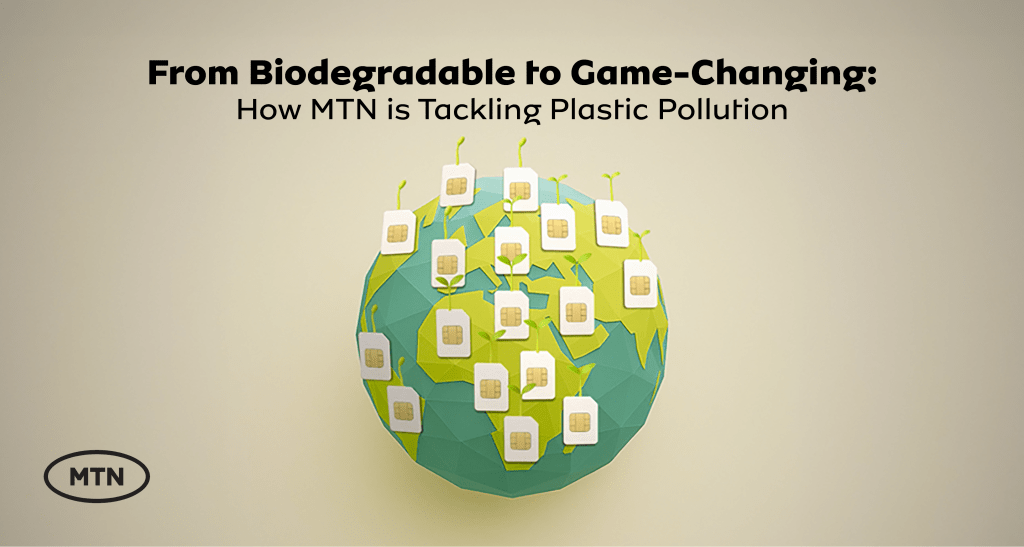
- Home
- About Us
- Sustainability
- Investors
- News
- People & Culture
-
Regions

Global plastic production, exceeding 400 million tonnes annually, demonstrates that plastic pollution remains an urgent challenge. More than half of it is designed for single use. The message for World Environment Day 2025 is unequivocal, we need to beat plastic pollution, and we need to do it with urgency.
This issue touches every sector. Telecommunications is no exception. While mobile operators are typically associated with connectivity, the industry has a legacy plastics problem hiding in plain sight. In 2020 alone, approximately 4.5 billion plastic SIM cards were produced globally. These small plastic cards are widely used and rarely recycled. Many end up in landfills or as litter. Others are incinerated, contributing to emissions. They are not the most visible source of waste, but they are a meaningful one, and entirely avoidable.
At MTN, we have taken a deliberate step to reduce this form of plastic waste. In 2024, we introduced bioSIMs, SIM cards made from 100% biodegradable, FSC-certified paper. They perform exactly like plastic SIMs but break down naturally when discarded. No harmful residue. No microplastic. Just responsible design, built for a more sustainable future.
The rollout began in Rwanda and expanding across other markets. It is a practical innovation grounded in science, not sentiment. And while it won’t solve plastic pollution on its own, it is part of a larger, necessary shift in how telecoms, and business at large, approach environmental responsibility.
Africa has a central role in this conversation. The continent contributes just 3–4% of global greenhouse gas emissions, yet it faces some of the worst consequences of climate change. At the same time, Africa is grappling with an accelerating waste challenge. By 2060, annual plastic waste in sub-Saharan Africa is projected to reach 116 million tonnes, a sixfold increase from 2019. The region’s rapid urbanisation and insufficient waste infrastructure make it highly vulnerable to both climate and pollution shocks.
It’s essential. Every tonne of plastic avoided reduces long-term risk, for people, infrastructure, and the planet. Our bioSIMs are part of a broader commitment at MTN to embed sustainability across our operations. As the UNEP reminds us, the solutions are available. What we need now is implementation at scale. Scaling starts with design. The average SIM card may weigh just four grams, but multiplied across millions of users, the footprint grows quickly. A small change in design, if adopted broadly, can remove tonnes of plastic from the supply chain each year. That’s the logic behind our bioSIM. It is efficient, cost-effective, and fundamentally better for the environment.
We are also expanding eSIM adoption, which removes the need for a physical card altogether. Combined, these efforts enable our customers to reduce their impact through the choices they make every day. That is where real momentum lies, not just in corporate strategy, but in shifting consumer norms.
This World Environment Day, the message is clear. Plastic pollution is a problem that can be solved. But doing so will require collective action, practical innovation, and a willingness to change how we operate. MTN is committed to being part of that change, starting with how we connect the communities we serve.